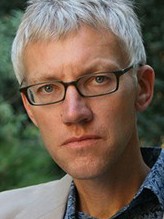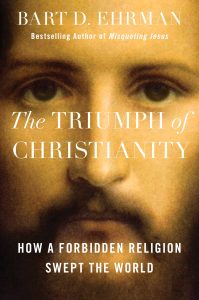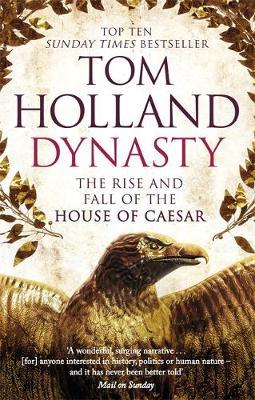
I thought Tom Holland was a historian. I am talking about the author of In the Shadow of the Sword, a history of the seventh century Arab conquests and emergence of Islam which I posted about three times in 2013. I had read the book after a fascinating interview with Holland on Australia’s Radio National’s Late Night Live show with Philip Adams. Presumably Tom Holland had been introduced as a historian and it never crossed my mind to doubt that that was his profession.
But today I was struck by something I read in Richard Carrier’s new post today, No, Tom Holland, It Wasn’t Christian Values That Saved the West. My first reaction was that somewhere Holland was re-hashing his apology and praise for Christian values and even the heritage of the Christian church itself. Of course there’s nothing wrong with “love thy neighbour”, but Holland goes well beyond that. He credits Christianity with having, in effect, saved the world from barbarism. I certainly acknowledge many good programs throughout history by some Christians and some Christian organizations, but it is going too far to claim, as Holland does, that the difference between pagan and Christian values in ancient times was as stark as night from day.
I was somewhat incredulous that such a “reputable historian” could come out with that sort of … somewhat debatable viewpoint. So I posted:
I was just as dismayed when I noticed Tim O’Neill’s wearing of a Tom Holland praise badge on his website:
“A brilliantly erudite blog that stands sentinel against the wish-fulfilment and tendentiousness to which atheists, on occasion, can be no less prey than believers” – Tom Holland, best-selling history writer
I have demonstrated (most recently here) just how lacking in erudition and how thoroughly tendentious O’Neill’s History for Atheists actually is in some of its posts.
But Richard Carrier has shown that I myself have been caught out merely assuming Tom Holland was a credentialed/trained historian. Here is Carrier’s opening to his new post, No, Tom Holland, It Wasn’t Christian Values That Saved the West
Novelist Tom Holland just wrote an article for The Spectator titled “Thank God for Western Values,” declaring the “debt of the West to Christianity is more deeply rooted than many might presume.” Everything he says is false.
The Back Story
Holland is another amateur playing at knowing what he’s talking about. He has no degrees in history, and no advanced degrees whatever. He has a bachelors in English and Latin poetry. He dabbled in getting a Ph.D. in Byron but gave up. No shame in that; but it still doesn’t qualify you to talk about ancient history, or even medieval. So keep that in mind. As to faith, he might be called a Christian atheist.
Now I squirm with that “another amateur playing at knowing what he’s talking about” put-down, but I was determined not to be caught out again so I checked and tried to find some credible source. I followed up the following citations in Holland’s Wikipedia page:
- Georges T. Dodds (June 1999). “A Conversation With Tom Holland”. The SF Site. Retrieved 16 September 2012.
- Charlotte Higgins (28 August 2005). “Tom Holland interview: Caligula, vampires and coping with death threats”. Guardian. Retrieved 16 March 2019.
Sure enough (and Carrier links to the first of these) Tom Holland never studied history at a tertiary level. Never. He has no formal studies in history to his credit. (Nor, by the way, does Tim O’Neill, who also studied literature, medieval literature in his case.) Even I have more “formal training” in university level history than Tom Holland, but more than that, I have built on my formal training (an arts degree majoring in history units, both ancient and modern) with trying to keep reasonably abreast of the scholarly debates and controversies about the nature of history ever since.
So I am finally getting my ear down close enough to the penny-in-the-slot-machine to hear the dropping action inside.
If you are wondering, by chance, in what way Holland might be incorrect when he leads a New Statesman article with
It took me a long time to realise my morals are not Greek or Roman, but thoroughly, and proudly, Christian.
then no doubt you will find some reasons in Carrier’s own post (I have not yet read it myself but I am sure with Carrier’s qualification in ancient history there will be some pretty good pointers there), and/or you can check out a post or two on this blog, such as:
- Christianity won over paganism by epitomizing pagan ideals
- Why Christianity spread so rapidly to become the main religion of the Roman empire
Even Pauline Christianity is arguably built on the principles of Stoic philosophy:



